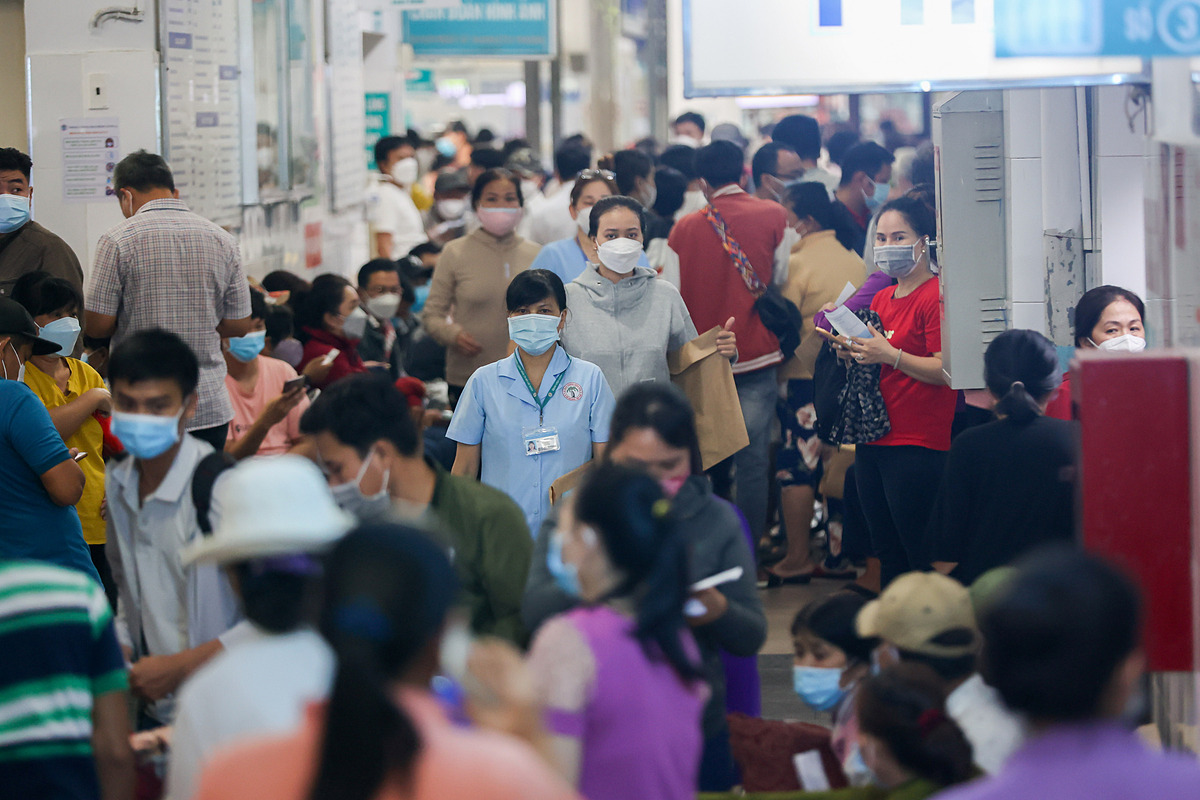"The health sector's stance is zero tolerance for touting, with no acceptance of hospital staff colluding with these individuals," Thuong stated at a workshop co-organized by the Department of Health on 30/7 to discuss solutions for preventing hospital touting.
Hospital touts, who broker and lure patients to private or unlicensed clinics instead of legitimate healthcare facilities, have been a long-standing issue at major hospitals in the city. This practice leads to fraud, financial loss, misdiagnosis, missed treatment windows, and negatively impacts the overall quality of healthcare services. Many hospital administrators have expressed difficulties in managing patient flow, especially at hospital entrances where spontaneous interactions between patients and outsiders are common.
To address this, the Department of Health is urging hospitals to focus on concrete solutions, starting with digital transformation. According to Thuong, hospitals should promote remote appointment scheduling through apps, websites, or hotlines. This not only eliminates the touts’ operating environment but also serves as a service quality indicator. Many hospitals have already integrated apps allowing patients to choose doctors, appointment times, make online payments, and receive electronic appointment slips remotely.
Secondly, admission procedures should be simplified to a "one-step" or "no-step" process for certain conditions. The goal is to allow patients with digital identification to proceed directly to examination rooms, minimizing waiting points and preventing tout interaction.
"Streamlined procedures and fewer waiting points are effective barriers against touts," Thuong said.
Furthermore, hospitals need to enhance their capacity to conduct and deliver same-day paraclinical test results. Integrating the testing system with doctors' prescription software will guide patients through the process, specifying locations and times, reducing confusion and crowding.
Additionally, hospitals are to organize continuous examinations from morning to afternoon, prioritizing workers and patients from other provinces. This allows patients to complete their medical procedures within a single day, reducing wait times and preventing unauthorized solicitations.
Hospitals are also required to collaborate closely with the Ho Chi Minh City Police Department to implement smart camera systems with facial recognition capabilities, enhancing security and patient flow management at major healthcare facilities.
 |
Crowds of patients at a major hospital in Ho Chi Minh City. Photo: Quynh Tran |
Crowds of patients at a major hospital in Ho Chi Minh City. Photo: Quynh Tran
In the long term, the city's health sector will continue to advocate for investments in expanding and upgrading overcrowded and dilapidated hospitals, while also building additional major hospitals to alleviate pressure, reduce wait times, and improve service quality. Concurrently, hospitals need to maintain and enhance their customer service teams, social work departments, and volunteer groups, proactively surveying patient satisfaction to address even the smallest details.
The Department of Health also urges patients to be aware and cautious of touts. People should avoid interacting with or following instructions from strangers outside hospitals, instead relying on official hospital channels for appointments and guidance. Any suspicious activity should be reported immediately through hospital hotlines or by contacting the Department of Health at 0967.771.010 or 0989.401.155.
Le Phuong












